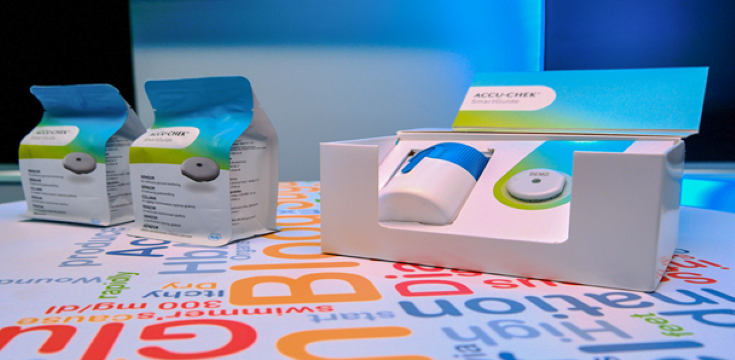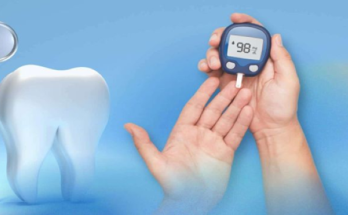Roche (SIX: RO, ROG; OTCQX: RHHBY) has introduced its Accu-Chek® SmartGuide continuous glucose monitoring (CGM) solution in South Africa, bringing advanced glucose tracking and AI-powered predictive insights to adults living with diabetes.
Diabetes affects 4.2 million South Africans and, if poorly managed, can lead to serious complications such as cardiovascular and kidney disease, nerve damage, vision loss, and mental health challenges. A recent GWI study with Roche found that 58% of people with diabetes feel a significant mental burden in managing their condition.
Although CGM technology has improved diabetes care, many still struggle to stay within a healthy glucose range. AI-enhanced tools like Accu-Chek® SmartGuide aim to help close this gap and support more confident, personalised diabetes management.
1. Diabetes Month is all about raising awareness. Why do you think this campaign remains so important for South Africans today?
Diabetes Month remains vital because the condition continues to rise in South Africa, affecting more than 4.2 million people. Many remain undiagnosed or struggle with consistent management. Awareness campaigns help encourage screening, education, and lifestyle changes that can prevent complications such as heart disease, kidney damage, and blindness.
2. More than 4.2 million South Africans live with diabetes. From your perspective, what are the biggest day-to-day challenges they face in managing the condition?
Daily challenges include constant glucose monitoring, balancing food, exercise, and medication, and dealing with the fear of unpredictable highs or lows. Many also struggle with access to affordable care, emotional fatigue, and keeping track of numbers and decisions that affect their health throughout the day.
3. Managing blood sugar can be mentally exhausting. How does the constant need to test, track, and calculate affect the emotional well-being of those living with diabetes?
This is a condition that demands constant attention and carries a heavy mental load. From finger pricks and calculations to the fear of sudden highs or dangerous overnight lows, managing blood sugar/glucose levels can be exhausting. It creates significant mental strain and anxiety. Many people feel they can never take a break from managing their diabetes. The constant calculations, finger pricks, and worry about dangerous glucose drops can lead to burnout, sleep disturbances, and even depression.
4. There are many misconceptions about diabetes. What are some of the most common myths you’d like to dispel?
Common myths include the belief that only eating too much sugar/unhealthily causes diabetes, that insulin use means failure, or that people can always “feel” when their glucose levels are off. Another misconception is that technology replaces the need for active management, while it helps enormously, personal awareness and clinical guidance remain essential.
5. Continuous glucose monitoring has already revolutionised diabetes care. How does this new generation of AI-powered CGM devices take it further?
Traditional BGM (Blood Glucose Monitoring) devices show what your glucose is doing right now – in that specific moment. This new AI-enabled CGM device predicts what will happen next. It can forecast glucose trends up to two hours in advance, allowing people to take action before their levels rise or fall.
6. In simple terms, how does predictive technology work?
How far ahead can it forecast glucose changes, and how reliable are those insights? The Accu-Chek SmartGuide sensor measures glucose every five minutes and sends this data to the app. Artificial intelligence-enabled algorithms built into the SmartGuide Predict app then analyse readings, along with your previous data and optional information such as meals or insulin doses, to forecast likely changes. It can alert users to potential low glucose within 30 minutes and predict broader trends up to two hours and for 12 hours overnight, with clinically validated accuracy.
7. What difference does it make when someone can anticipate a glucose spike or drop before it happens?
It gives users the chance to act early, by eating, adjusting insulin, or changing activity levels, to avoid uncomfortable or dangerous symptoms. This proactive approach helps prevent severe hypoglycaemia, especially at night, and reduces the constant fear of unexpected glucose swings.
8. Beyond the numbers, how does predictive CGM improve quality of life and peace of mind for users?
It helps people plan their days with confidence and sleep better knowing they’ll be alerted to potential lows. By predicting rather than reacting, users could experience less stress, fewer disruptions, and a greater sense of control over their condition.
9. Do you have any success stories or real-life experiences from South Africans using this technology that illustrate its impact?
As the Accu-Chek SmartGuide has only just launched in South Africa, local stories are still emerging. Early users internationally report greater confidence, fewer nighttime scares, and reduced anxiety thanks to predictive alerts and clearer trend insights.
10. How accessible is this new CGM in South Africa? Will it be available through public healthcare, medical aids, or private purchase only?
The Accu-Chek SmartGuide CGM sensor is available locally for adults aged 18 and above and can be prescribed or recommended by your doctor through pharmacies. App listings are already live in the Google Play Store or App Store. Coverage through medical aids will depend on each scheme’s policies and rollout timelines.
11. For people newly diagnosed with diabetes, what practical advice would you give to help them feel more in control of their condition?
Ask your doctor or healthcare provider your questions – don’t be embarrassed. Start by learning the basics of how food, medication, and activity affect your glucose. Track your patterns consistently, work closely with your healthcare provider, and consider using a CGM if possible.
Follow support groups and reputable online sites such as www.diabetessa.org.za and Diabetes Focus www.diabetessa.org.za/diabetes-focus / and www.sweetlife.org.za. Most importantly, look after your mental wellbeing – diabetes management is demanding, but knowledge and support make it manageable.
12. Finally, how do you see AI and smart-health innovations shaping the future of diabetes management in the years to come?
AI and connected devices will make diabetes care more predictive and personalised. They’ll help users and healthcare professionals spot patterns, prevent emergencies, and tailor treatment in real time. The future lies in turning data into foresight, giving people the freedom to live with fewer interruptions and greater peace of mind.
For more information, please visit www.roche.com.




